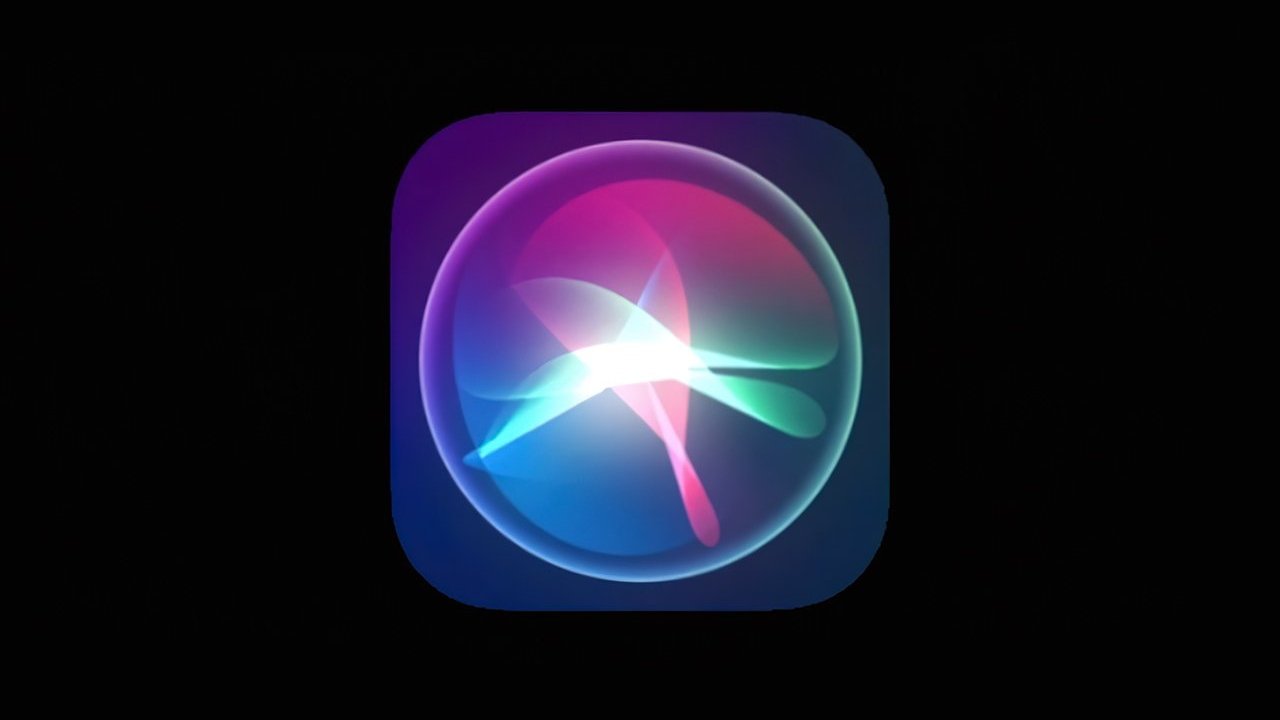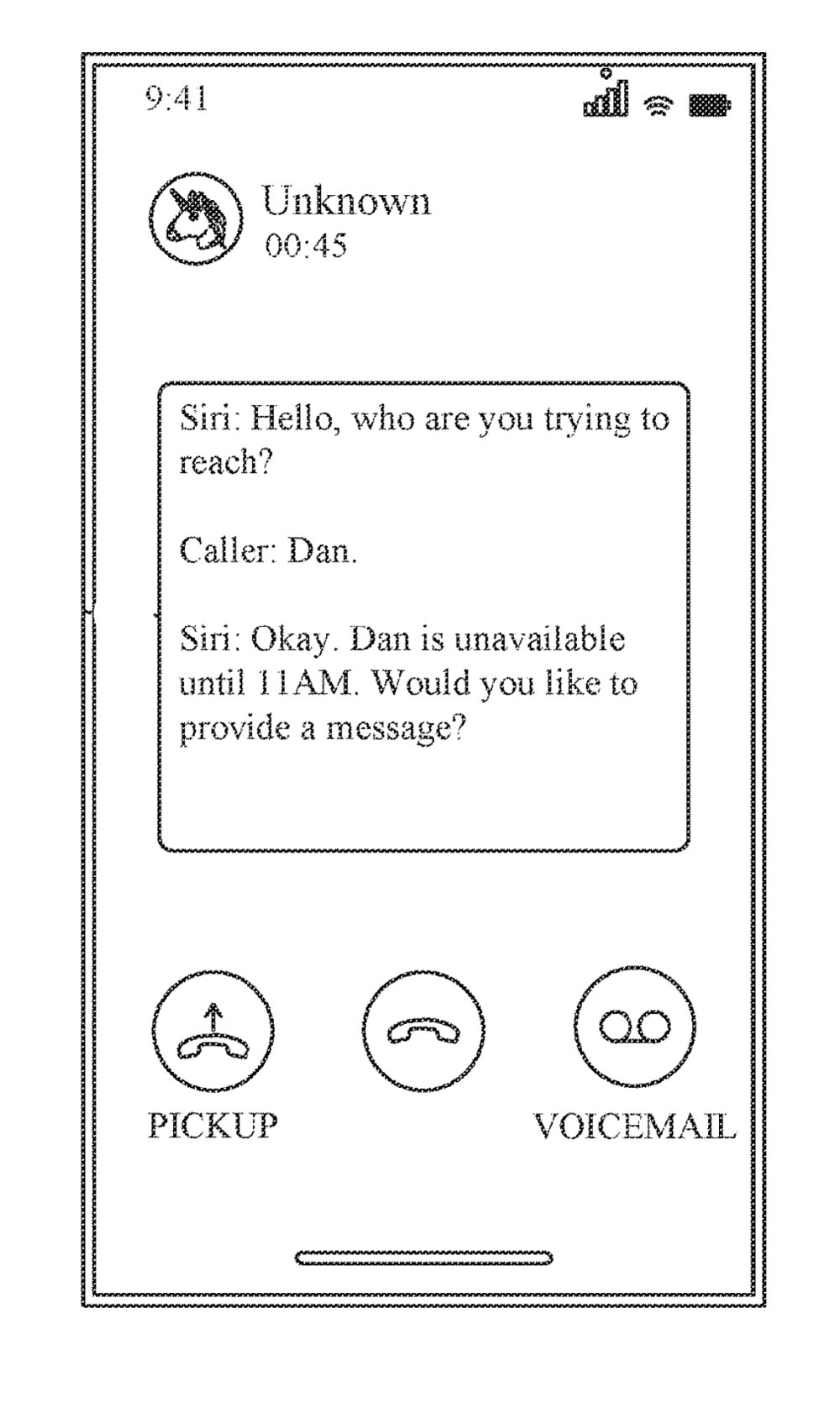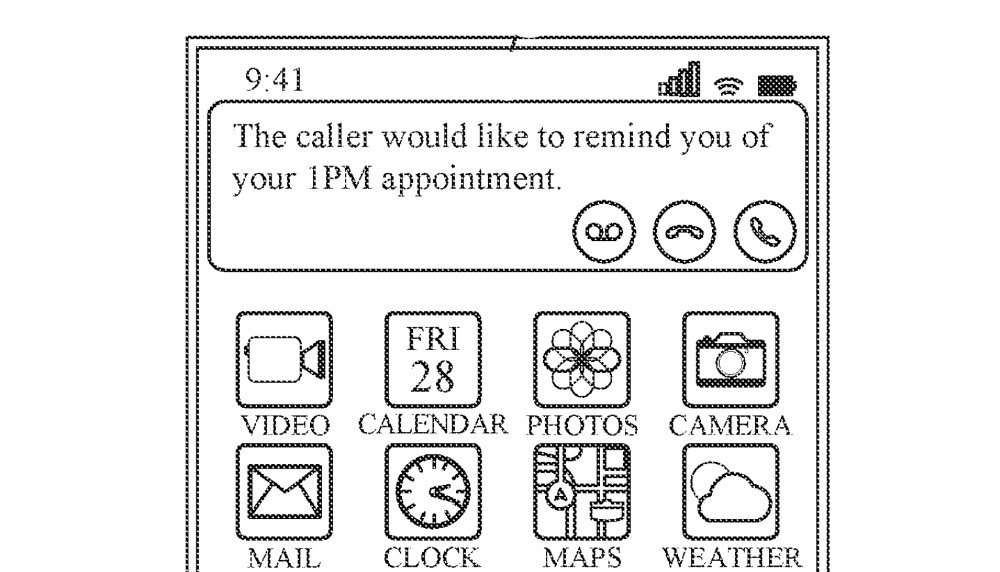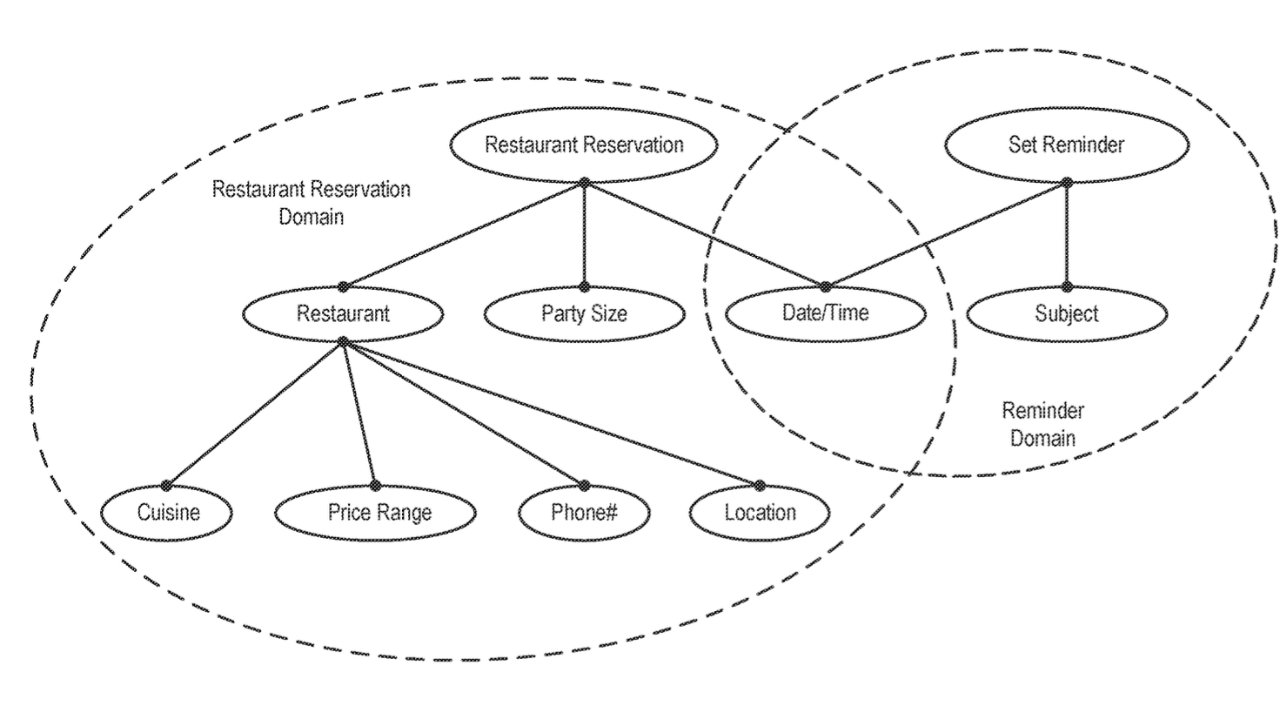Article Hero Image

AppleInsider may earn an affiliate commission on purchases made through links on our site.
Apple wants Siri to work the phones for you, make and receive calls, arrange appointments, or just play back different voicemail messages to your partner and your boss.
Face it, Siri is going to have to become a lot more consistent before any of this will ever be used, but Apple has plans. A newly-granted patent called "Digital Assistant Integration with Telephony," details how Siri — or other voice assistants — could get you using your iPhone for calls again.
"Telephony has long been a fundamental technological feature for facilitating communication," says Apple. "Recent advancements in digital assistant technology has also improved interactions between humans and devices... however, the full potential of integrating telephony and digital assistant technology has not been fully realized."
At the most basic level, Apple's proposals would mean you could call up Siri with your voice, even while you're on phone call. Siri could intelligently determine that you're asking it to do something, as opposed to complaining to your caller about it.
"For example, a user can provide a speech input containing a user request to a digital assistant operating on an electronic device," continues Apple. "The digital assistant can interpret the user's intent from the speech input and operationalize the user's intent into tasks."
Siri might, for instance, do a dictionary check on the word "operationalize" and whisper back in the user's ear that, yes, surprisingly, it is a real word.
Or if you're in a group call and someone asks, "Does anyone know how late The Pizza Place is open?"... Siri could look up the answer and butt in to the conversation.
But Apple's intention is to do much more than provide regular Siri access where it currently doesn't.

"For example, conventional digital assistants are not capable of managing incoming and outgoing calls on behalf of users, much less facilitating ongoing calls," continues Apple. "Given the speech-based nature of both digital assistant technology and telephony, an improved system for integrating digital assistants with telephony is desired."
So Apple figures that since you talk to Siri and you talk on the phone, there must be something you can do to combine them. A very great deal of the almost 40,000 words of the patent is concerned with how to enter gestures on the iPhone screen during a call, but then Apple lets into letting Siri take over.
"For example, an incoming call may be received, from a caller, at an electronic device," says Apple. In other words, your iPhone rings and Siri takes the call.
What happens then depends on whether Siri recognizes the caller, as in it's someone in your Contacts list. There are obviously also unknown callers, plus Apple says Siri can detect automated calling systems.
The idea is that it can do different things, it can respond differently, depending on who is calling. Siri can just hang up on automated calling systems, for instance.
Let's have your Siri call my Siri
It isn't just checking against your Contacts list, either. "In some examples, voice identification and speech recognition is utilized in order to determine the identity of a caller," continues Apple.
As ever, Apple follows a comment like that with a lot of detail about privacy. "The generating and storing of voiceprints may require prior approval from the person corresponding to the respective voiceprint in order for such voiceprints to be utilized," it says.
But it suggests users could save voiceprints that "may correspond to speech profiles of persons such as family members or other close contacts."
Apple patents always concentrate on how something may achieved and tend to only skim over possible applications. So the patent moves on to how Siri could assign "various trust levels... associated with callers."

"For example, any known contact may be assigned a 'medium' trust level," says the patent. "Certain contacts may be assigned a 'high' trust level, such as contacts belonging to specific groups (e.g., 'family,' 'VIP,' etc.)."
"A high trust level may also be assigned based on a communication frequency," so that when "the user interacts with the caller at least once per day," that caller could be "assigned a 'high' trust level."
Equally, there are "low" trust levels, "such as unknown callers, callers associated with contacts added to a "block" list, and the like."
It's by having this ability to "know" who the caller is, and having an assigned trust level, that means Siri can play your boss a recorded message saying you're in a meeting. And tells your partner you're at a job interview.
Siri can mess with callers
Say you don't know the caller, but because of your work, you can't just block all unknown calls. Apple says that Siri could ask the caller some questions, and depending on the answers, put them through to you or hang up.
In one example, the question is simply "who are you trying to reach?" or something similar.
But it can also go further, specifically to figure out if the caller is a real person, or another Siri trying to phone you about timeshares.
"For example, the digital assistant may provide, to the caller, a prompt including an interrogatory," says Apple, "such as 'Let me ask you some questions. What is the opposite of Monday?'"
If you just blinked at that, Siri knows you're human.
"In this example, the interrogatory may include a nonsensical or otherwise illogical question," continues Apple, "such that a human user would respond with a predictable response and/or response pattern, such as a pause followed by a clarifying question (e.g., 'What do you mean?', 'Excuse me?' etc.)."
Apple says that an automated system "may have difficulty interpreting such an interrogatory.: It might respond with a "pre-configured default recording, such as 'Hi, this is Senator Smith.'"
The patent does not say that the moment Siri hears the word "senator" it ascribes a low trust setting to the caller, but it could.

Real-world applications
Of course, Siri is an automated system so while the patent does not specifically detail this, the technology proposed has to be capable of placing calls, too.
The diagrams in Apple's patent include the booking of a restaurant table. It's not too big a step to imagine being able to say, "Hey, Siri, book me a table for two at the nearest pizza place sometime Tuesday evening."
Assuming your Siri gets by the pizza place's Siri, the restaurant could offer a reservation for 7pm and have it accepted on your behalf.
Really, though, the concept is to integrate Siri into everything you do, everywhere that it can be of use. So that issues such as being on a phone call are no longer enough to silence Siri's ability to do work for you.
The patent is credited to five inventors, including Marcel Van Os, who has previously worked on smart rings.